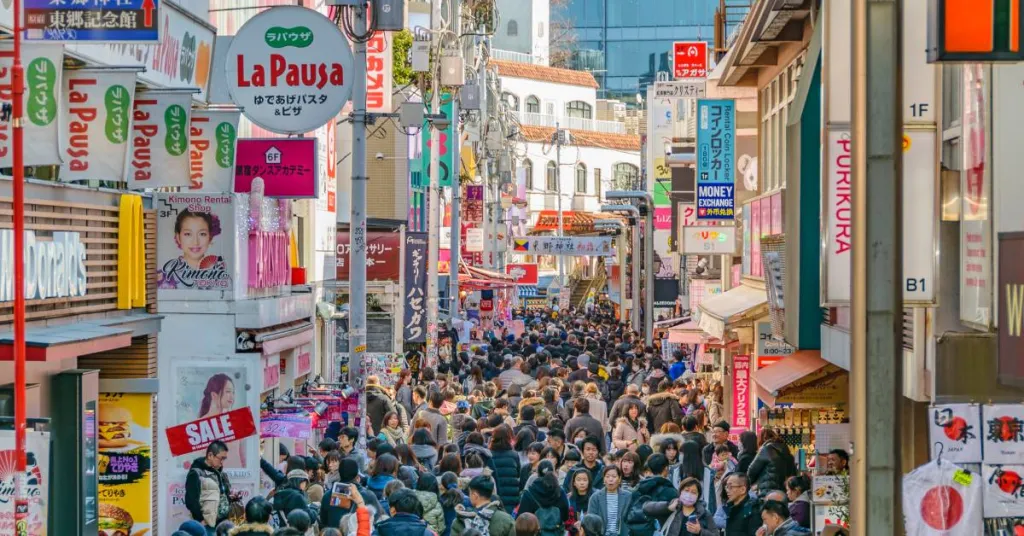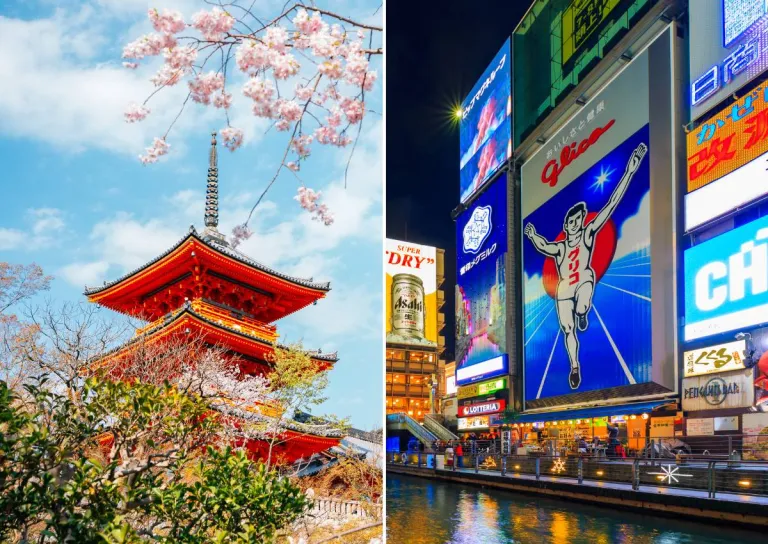Our favourite places to stay on this sleepy Cebu island.
Tourism Boom Prompts Japan to Consider Dual Pricing System

As the yen weakens, Japan is witnessing a significant surge in tourism, leading businesses to consider implementing a dual pricing system, potentially charging foreign visitors higher prices. This move aims to address rising operational costs and ensure a fair distribution of expenses among locals and tourists.
Also read: New Requirements for Multiple-Entry Japanese Visa 2024
What we know so far about the Japan dual pricing system

In June 2024, Nikkei Asia reported that Japan's restaurant industry was exploring a two-tiered pricing system in popular tourist spots. The chairman and president of Watami, a major restaurant chain, explained that while Japanese locals rarely purchase expensive items like 3,000 yen sirloin beef skewers, tourists find them affordable and buy them in large quantities. This discrepancy in purchasing power has prompted discussions about adjusting prices for tourists.
On 23 Jul 2024, Mainichi highlighted that businesses and entities support the dual pricing system due to rising labour and operational costs. A restaurant owner mentioned the need to hire and train English-speaking staff to cater to foreign customers, adding that passing these additional costs onto local patrons would be unfair. Instead, they propose charging tourists slightly higher prices to cover these expenses.
Himeji Castle, a UNESCO World Heritage Site, is also considering separate charges for foreign tourists. Currently, an adult admission ticket costs JP¥1,000 (around ₱384). According to NHK, Himeji Castle had 1.48 million visitors in the last fiscal year, with 30 percent being foreigners. The Himeji Mayor emphasised the high costs of maintaining and preserving the castle, including materials, repairs, specialised craftspeople, and earthquake resistance fortification. He suggested a slight difference in fees between different visitor categories, such as children, the elderly, and sightseers, to balance these expenses.
Adapting to changes
Some businesses are adopting alternative approaches to manage the influx of tourists. A Tokyo restaurant offers discounts to locals instead of increasing prices for foreigners. The owner stated, "I think people are more understanding about offering a discount to domestic customers, rather than raising the price for foreign tourists." This strategy has been well-received by customers, who appreciate the effort to support local patrons.
In Hiroshima, a restaurant designated Friday night as "Prefectural Citizens' Day," allowing only locals and repeat customers to dine. This initiative addresses the challenge of accommodating locals amidst a high volume of foreign diners, who account for over 80 percent of the restaurant's turnover.
Tourism policy expert Sataki Yoshihiro urged careful consideration when reviewing prices at attractions like Himeji Castle. He argued that fee differences based on nationality might be perceived as unfair, especially as Japan promotes inbound tourism. Sataki emphasised that if there is to be a difference in fees, the rationale should be clearly explained, and additional services or value should be provided for foreigners. "There shouldn't be a higher fee just because a customer is a foreigner," he concluded.
Also read: Japan Foreign Residents Surge Hit Record High Amid Citizen Decline
As the government navigates the complexities of balancing tourism growth and local interests, the Japan dual pricing system represents a potential solution to manage the economic impact of rising tourist numbers.
Featured image credit: Rudimencial via Canva Pro
Published at
About Author
Anne Mercado
Subscribe our Newsletter
Get our weekly tips and travel news!
Recommended Articles
10 Bantayan Island Resorts, Hotels, and Rentals for Your Tropical Escape 10 Best Mountain Cafes in the Philippines for Your Peak Coffee Experience Coffee date on the mountains, anyone?
10 Best Things to Do in Los Angeles Los Angeles is more than Hollywood stars. From hikes with killer views to beaches straight out of a rom-com, here are 10 must-do LA experiences for Filipino travellers or any wanderers in general!
10 Cutest Cafes in Japan That Are Totally One of a Kind From Pikachu snacks to Totoro cream puffs, here are 10 themed cafes in Japan that prove café hopping should be part of your travel itinerary.
10-day Christmas and New Year Japan Trip: Complete Travel Itinerary Celebrate Christmas and New Year in Japan with this 10-day holiday vacation itinerary packed with Tokyo lights, Kyoto charm, and Osaka adventures.
Latest Articles
6 Filipino Foods to Eat During New Year's Eve for Better Luck and Wealth in 2026 Lucky Filipino foods you need for a prosperous Year of the Fire Horse!
FREE NYE 2026 Countdown & Firework Shows in the Philippines Don't waste ₱17k on hotel tickets! Catch SB19, Bamboo, and Ely Buendia for FREE.
New US Biometric Rule Filipino Travellers Must Know Mandatory border photo checks
Free MRT 3 Rides on Rizal Day 2025 Four hours of free rides
SM North-Trinoma Walkway Soon to Be Built, Says DOTr Safer walks ahead!

